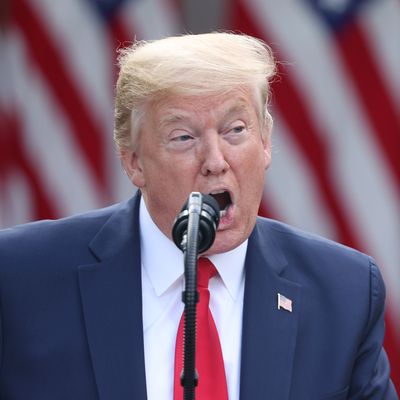
Setting aside the bigger picture of how the United States should handle its relationship with China, the president seems to possess an instinct that drives him to take the exact-wrong approach relative to his short-term goals regarding Beijing. In the seemingly prehistoric trade war from the summer of 2019, Trump hoped to protect American producers from getting “ripped off” by China but wound up devastating farmers who spent decades building customer bases across the Pacific; to offset financial losses from a trade war designed to make money, the USDA paid over $20 billion to agricultural providers in 2019.
Two weeks ago, the president made the decision to cut American funding for the World Health Organization in the middle of a pandemic. Though the United Nations agency did bungle aspects of its COVID-19 response, Trump’s reason for the cut — that the WHO was “severely mismanaging and covering up the spread of the coronavirus” and was biased to believe Beijing — were allegations that could be directed his way, as well. Despite the need for a reckoning within the agency, public health experts lambasted the president for cutting aid during a pandemic to the international organization designed to prevent pandemics. “During the worst public health crisis in a century, halting funding to the World Health Organization is a dangerous step in the wrong direction that will not make defeating COVID-19 easier,” the American Medical Association said in a statement.
Despite evidence that COVID-19 may have jumped from bats to humans — with a possible layover in the immune systems of pangolins — Politico reports that President Trump is now cutting funding for researchers determining how bat coronaviruses can infect humans because the project is linked to a lab in Wuhan, China. On Friday, the National Institutes of Health told the sponsor of the study for the past five years, EcoHealth Alliance, that all future funding was off the table and that the nonprofit would stop spending the remaining $369,819 from its 2020 grant. Politico explains why the cash flow was shut off to the project:
The group caught national attention a week ago after reports swirled that millions from its NIH grants had been sent to the Wuhan Institute of Virology, a research facility in the city where the coronavirus pandemic originated. In an email last week to NIH officials, EcoHealth Alliance President Pete Daszak denied giving any money this year to the Wuhan lab, although researchers from the facility have collaborated with EcoHealth Alliance scientists on research supported by an earlier grant.
The Wuhan lab is at the center of conspiracy theories alleging that the coronavirus outbreak began when the virus escaped the facility. U.S. intelligence agencies and scientists have not found any evidence to support the rumors.
The project, which received $3.7 million in federal grants over five years, first came to the political forefront on April 17, when a Newsmax reporter asked Trump if any of its funding had been routed to Chinese labs. “We will end that grant very quickly,” Trump responded. “It was granted quite a while ago. Who was president then, I wonder?” While the funding was first approved under President Obama, the NIH renewed it in July of last year.
There are a few logical flaws at hand. As Politico notes, the NIH’s plan to study the coronavirus, released last week, vows to understand the virus’s origin and transmission, a project exactly in line with the goals of the EcoHealth researchers who have produced at least 20 scientific papers since 2015. And taking the group’s president, Pete Daszak, at his word that they did not share funding to Chinese researchers, it certainly makes sense that American scientists would be interested in working with colleagues from the city in which the pandemic began.
Perhaps most importantly, the revocation of just over $3.7 million is a paltry sum for the NIH, which operated on a $39 billion budget in 2019. Cutting 0.000094 percent of the budget in an apparent act of political posturing shows that the Trump administration continues to let its incoherent policy toward China obstruct important research that may help us fend off the next pandemic — even as we’re still in the heart of the current one.






























